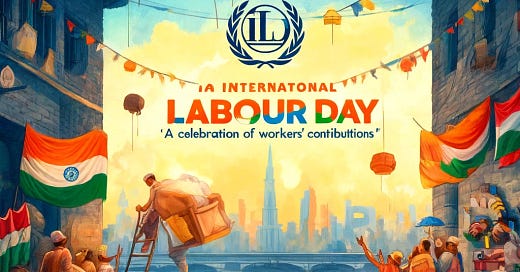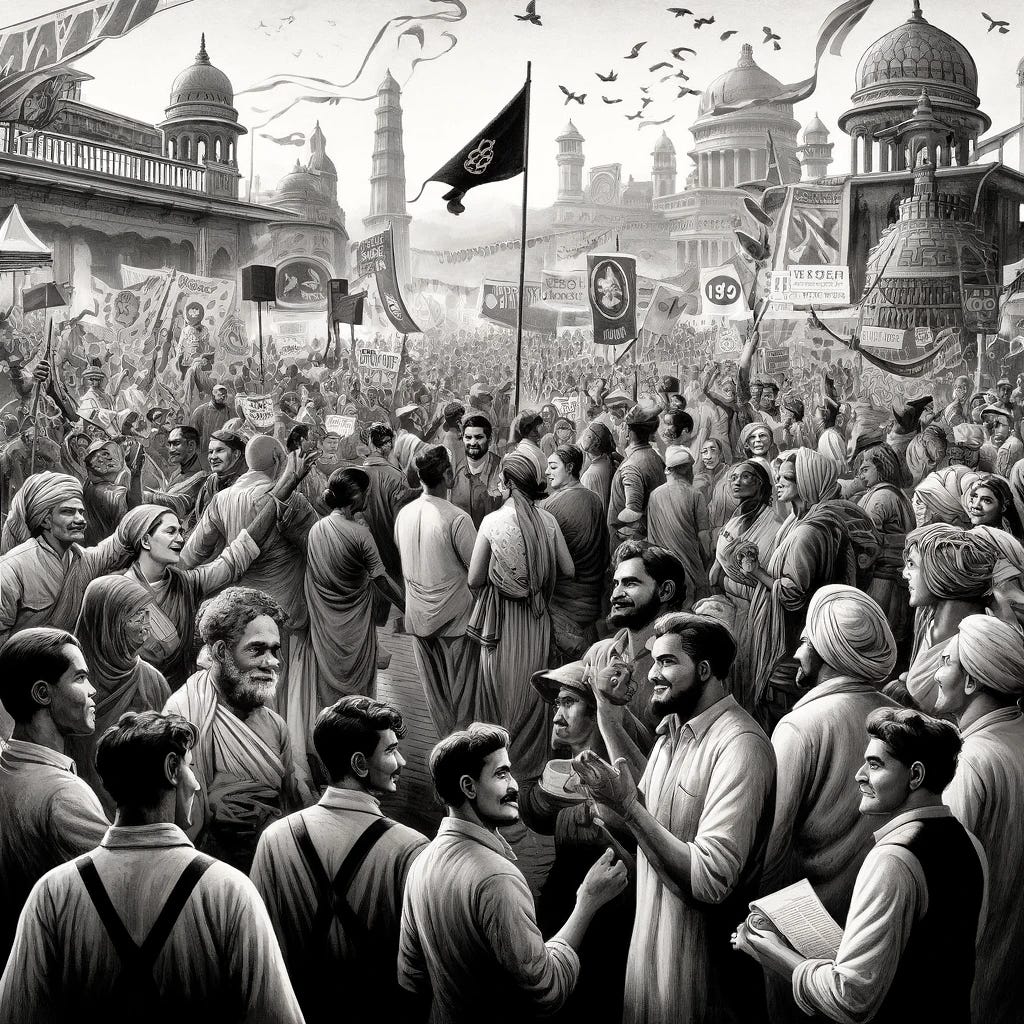Labour Day: A Celebration of Workers' Contributions
May Day, the first of May, is generally a public holiday in almost every Indian State.
Labour Day: A Celebration of Workers' Contributions
Labour Day, also known as May Day or International Workers' Day, celebrated on 1st of May, holds great significance in many parts of the world. In India, it's a day to honour workers and reflect on their rights and contributions. Despite the global shift towards automation and reduced reliance on manual labour, Labour Day remains a crucial reminder of the workforce's pivotal role in society. Here's an Indian perspective on this important day, along with a brief comparison to the US version of the holiday.
A History Rooted in Social Justice
Labour Day in India has its roots in the early 20th century, with the first celebration taking place in Chennai in 1923. It was championed by the Labour Kisan Party of Hindustan, reflecting the early efforts of Indian workers to organise and fight for their rights. The day has since evolved into a broader symbol of the labour movement's ongoing struggle for fair wages, safe working conditions, and workers' dignity.
Celebrating Workers in a Changing Economy
India's economy has experienced significant transformation over the years, with a shift from manual labour to technology-driven industries. Despite this, the importance of Labour Day remains steadfast. It is an opportunity to acknowledge the workers in all sectors, from agriculture and manufacturing to IT and service industries, whose efforts underpin the nation's growth and development.
Rallies and Recognition
On 1st May, various Indian states celebrate Labour Day with public holidays, rallies, and events. These gatherings serve as a platform for workers' unions to advocate for better working conditions and social justice. It's also a time to reflect on the achievements of the labour movement and to recommit to addressing ongoing challenges faced by workers, such as job security, fair wages, and workplace safety.
The Industrial Disputes Act: Safeguarding Workers' Rights
The Industrial Disputes Act, enacted in India in 1947, is a cornerstone legislation that addresses industrial disputes, collective bargaining, and the role of trade unions in protecting workers' rights. It establishes a legal framework for resolving disputes between employers and employees through conciliation, arbitration, and adjudication. The Act also sets out procedures for collective bargaining, enabling trade unions to negotiate on behalf of workers for better wages, working conditions, and other employment terms.
A critical aspect of the Industrial Disputes Act is its focus on preventing the exploitation of labour. It includes provisions for the regulation of strikes and lockouts, ensuring that both employers and employees follow due process in resolving conflicts. The Act mandates that industrial disputes should be resolved in a manner that promotes harmony and avoids unnecessary disruptions to the workforce and industry.
This legislation plays a significant role in the context of Labour Day, reinforcing the importance of protecting workers from unfair labour practices and exploitation. By encouraging collective bargaining and supporting the role of trade unions, the Industrial Disputes Act empowers workers to advocate for their rights. It also contributes to the broader objectives of Labour Day, which celebrate workers' contributions and promote a fair and just working environment.
Labour Day in the United States
In the United States, Labour Day is celebrated on the first Monday of September, rather than in May and is a public holiday, creating a long weekend. It marks the unofficial end of summer and is typically associated with parades, barbecues, and family gatherings. While the US Labour Day has a more relaxed tone compared to May Day, it still honours the contributions of American workers and the labour movement's history. The difference in dates reflects the unique labour struggles and cultural contexts of each country.
India and the International Labour Organisation (ILO)
The International Labour Organisation (ILO) is a specialised agency of the United Nations, established in 1919 originally under the auspices of the League of Nations, with a mandate to promote social justice and fair labour practices worldwide. As a tripartite body, the ILO brings together governments, employers, and workers' representatives to set international labour standards. India has been a member of the ILO since its inception in 1919, and as a founding member, it has played an active role in shaping the organisation's agenda.
India's contributions to the ILO have been significant, particularly in promoting labour rights and social justice. The ILO's conventions address a wide range of issues, including child labour, forced labour, discrimination, workplace safety, and the right to collective bargaining. India's involvement in these initiatives has been instrumental in setting global benchmarks for fair labour practices and improved working conditions.
The ILO aims to ensure that workers' rights are respected across the globe and to advance the principles of decent work. By fostering a collaborative approach among governments, employers, and workers, the ILO contributes to sustainable economic growth and social stability in many countries, including India and the United States. India's longstanding commitment to the ILO reinforces its dedication to the welfare of its workforce and the broader goals of social justice and equality in the workplace.
The Unwavering Importance of Labour Day
Despite reduced reliance on manual labour, Labour Day continues to be a day of great importance. It serves as a reminder that the workforce, whether manual or technical, is the backbone of any economy. By celebrating Labour Day, societies acknowledge the dedication and hard work of their workers, regardless of the industry they represent. The day encourages ongoing efforts to ensure that workers' rights are protected and their contributions are valued in a rapidly changing world.






